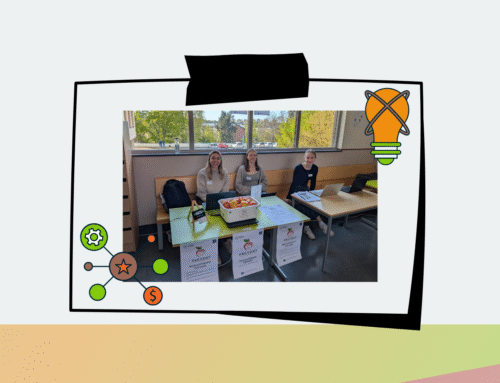One of the fundamental action points of PREVENT is the establishment of the Community of Practice (CoP), which represents a significant step forward for the outcomes of the project. The CoP stands for a multi-disciplinary team composed of physicians, oncologists, nutritionists, educators, scholar units, etc. collaborating to improve the design and implementation of health interventions and policies related to PREVENT, with the goal of scaling up their impact. Sweden made the first step forward in the implementation of PREVENT’s priorities and defined the first CoP workshop in December 2023, which holds significant importance for the project as it serves as a foundational step in understanding and addressing challenges related to school nutrition within the Swedish context.
The first PREVENT CoP workshop in Sweden took place on the 4th of December 2023 and was conducted online through video conferencing. It was organised and hosted by Karolinska Institute and involved a diverse group of participants, including school doctors, dietitians, researchers, childhood obesity treatment and intervention specialists, school principals, technical teams, and stakeholders actively involved in cancer-related initiatives. The primary focus of the workshop, besides introducing the project, was to engage in discussions regarding the challenges perceived by the stakeholders and identify the necessary components that PREVENT should employ to effectively address them. Moreover, the workshop aimed to explore strategies for conveying the message to children about the profound impact of a healthy lifestyle on their future health, particularly in relation to cancer prevention.
Participants identified various challenges related to school nutrition. The diversity of schools and municipalities highlighted the need for designated leadership to navigate complexities. Participants identified a key issue in fruit consumption, while vegetables were already integrated to some extent into most school lunches. The financial aspect also emerged, with additional funds needed for fruits, leading to a decision-making process at the school level. Practical issues, such as the unpopularity of certain fruits and the challenge of ensuring they are consumed, were discussed. Solutions included making fruits more attractive, slicing them for easier consumption, serving them when children are hungry, and potentially having a separate fruit station to encourage consumption. This discussion took place under the proposed framework for designing innovative deployments and evaluating them with regard to the European School fruit, vegetables and milk scheme [1].
The buffet setting in schools posed a challenge, with children favouring more attractive, often less healthy options (usually high in sugar and fat). Suggestions included offering a more balanced buffet, introducing fruits as snacks for all children, and exploring the possibility of providing fruits to “take away” outside of school meals. Participants emphasised involving children early on in the co-creation process to gather their ideas. One highlighted challenge was not just the insufficient intake of fruits and vegetables but also its equal importance compared to portion sizes and the overall quality of food consumed by children. This challenge extends beyond the school environment, encompassing dietary habits outside of school. It became evident that addressing the broader issue of portion sizes and food quality, both within and beyond schools, is essential for fostering healthier eating habits among children.
As the discussion extended to the relationship between healthy lifestyles and future health, participants emphasised a cautious approach. While the link between cancer and obesity lies at the core of the PREVENT project, the consensus was to not explicitly communicate this to children. Seeking input from teachers and aligning with curriculum guidelines were proposed, in combination with tailoring the health-promoting messages based on the participating children’s ages. The consortium should also account for changes in children’s eating habits, especially during high school. Metaphors, such as comparing health to a car’s fuel or the care of a pet, were suggested to convey the message subtly. The consensus leaned towards emphasising present benefits over long-term outcomes, with a focus on positive reinforcement and achievable short-term goals (e.g. eating 5 colours per day) for greater engagement. The need for concise messaging was underscored, with agreement that shorter messages, focusing on immediate objectives, are more effective for children. The workshop concluded by thanking all participants and informing them that as a follow-up, a brief questionnaire will be sent to gather valuable insights and feedback.
In conclusion, the CoP meeting marked an important step in understanding the challenges related to school nutrition and the actions that need to be taken, providing a platform for collaborative problem-solving with experts and generating actionable ideas for a healthier and brighter future! In the end, the experts promised to provide additional offline feedback about issues relevant to the future of the Swe-CoP, its potential expansion across more relevant stakeholders and its optimised function as the PREVENT project matures.
References:
- School fruit, vegetables and milk scheme. Agriculture and rural development. Available at: https://rb.gy/215sqe (Accessed: 04 December 2023).




